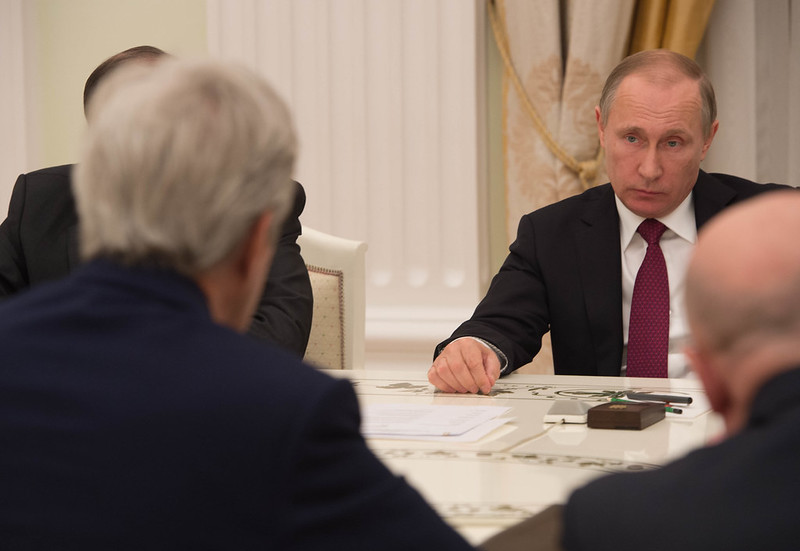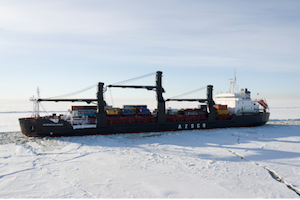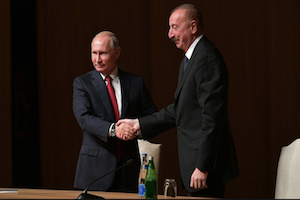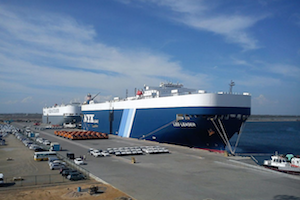Moscow's Eurasian Leadership in Crisis
By Richard Weitz
December 9, 2020, the CACI Analyst
Russian leaders consider sustaining Moscow’s influence in Central Asia, the South Caucasus, and other former Soviet Republics one of their highest foreign-policy priorities. Yet, during the recent crises in Belarus, Kyrgyzstan, and the Nagorno-Karabakh region, Moscow has displayed a surprisingly passive response to these disorders. This approach may succeed in the short run but risks magnifying the long-term centrifugal pull of alternative powers – the EU in the west, Turkey in the south, and China in the east.

Kazakhstan as an Arctic State and a Maritime Power
By Tristan Kenderdine
January 23, 2019, the CACI Analyst
The Ob’-Irtysh is the sixth largest river in the world by drainage area and sixth longest in the world at 5,410 kilometers. It is a broad and deep river, easily navigable by river barge, and also by sea-going vessels deep into the Eurasian continent. Geographically, this river system connects Kazakhstan to the Arctic Ocean, and if sufficient river maritime infrastructure were present then Kazakhstan could avoid the endogenous trade tariff that comes with being landlocked. This has massive implications for Kazakhstan’s potential trade, industry, and wider economic development.

What Would Membership in the CSTO Mean for Azerbaijan and the South Caucasus?
By Fuad Shahbazov
October 18, 2018, the CACI Analyst
On August 16, the Azerbaijani MP and head of the Azerbaijan-Russia interparliamentary group Ali Huseynli told local media that “It would be advisable to consider Azerbaijan’s participation in the Collective Security Treaty Organization” (CSTO). The sensational statement triggered a public discussion on Azerbaijan’s possible membership in the Russia-led CSTO and its consequences for the region. While some state officials described this prospect as a logical extension of Baku’s cooperation with Moscow, others strictly opposed the idea, stating that it would pose dangerous challenges to the country.

Sri Lanka's Lesson for Eurasia
By Stephen Blank
September 27, 2018, the CACI Analyst
Sri Lanka’s experience with China’s Belt and Road Initiative is a cautionary tale for governments in Eurasia that wish to affiliate with this mammoth project. Chinese investments in the port of Hambantota already in 2004 identified as part of China’s “string of pearls” strategy in the Indian Ocean. However, investments took the form of loans that the Sri Lankan government could not repay. After months of negotiation and heavy pressure, the Sri Lankan government turned the port, including all its structures and capacities, plus 15,000 acres around it to China in late 2017.

Advancing Georgian-U.S. security cooperation after the Trump transition
By Richard Weitz
January 19th 2017, the CACI Analyst
The Trump administration will soon undertake a comprehensive review of Russia-US relations and U.S. policy toward the rest of Eurasia. Although the new team will presumably consider many options, the president-elect’s statements imply that the U.S. will not soon support further NATO expansion or other actions that would strongly antagonize Moscow. Despite this limitation, the U.S. government will continue security ties with U.S. partners in Eurasia, such as Georgia. In practice, there are a number of steps the U.S. and Georgia can undertake to advance their mutual security.



